Heavy rain and storms sweep across Germany
From Bavaria to Hamburg, and North Rhine-Westphalia to Thuringia – there was heavy rainfall across Germany on Thursday.
It resulted in major travel disruption, flooded cellars and streets becoming submerged in water.
The German Weather Service (DWD) issued severe weather warnings – including in Saxony and Saxony-Anhalt. There were also explicit warnings of lightning strikes. In Gernrode in Saxony-Anhalt, a lightning strike destroyed the chimney of a detached house, while in Unterpörlitz in Thuringia a roof truss caught fire after being struck by lightning.
According to Hamburg fire and rescue teams, there were more than 700 call-outs by early evening. In addition to flooding, emergency services had to deal with uprooted trees and fallen branches.
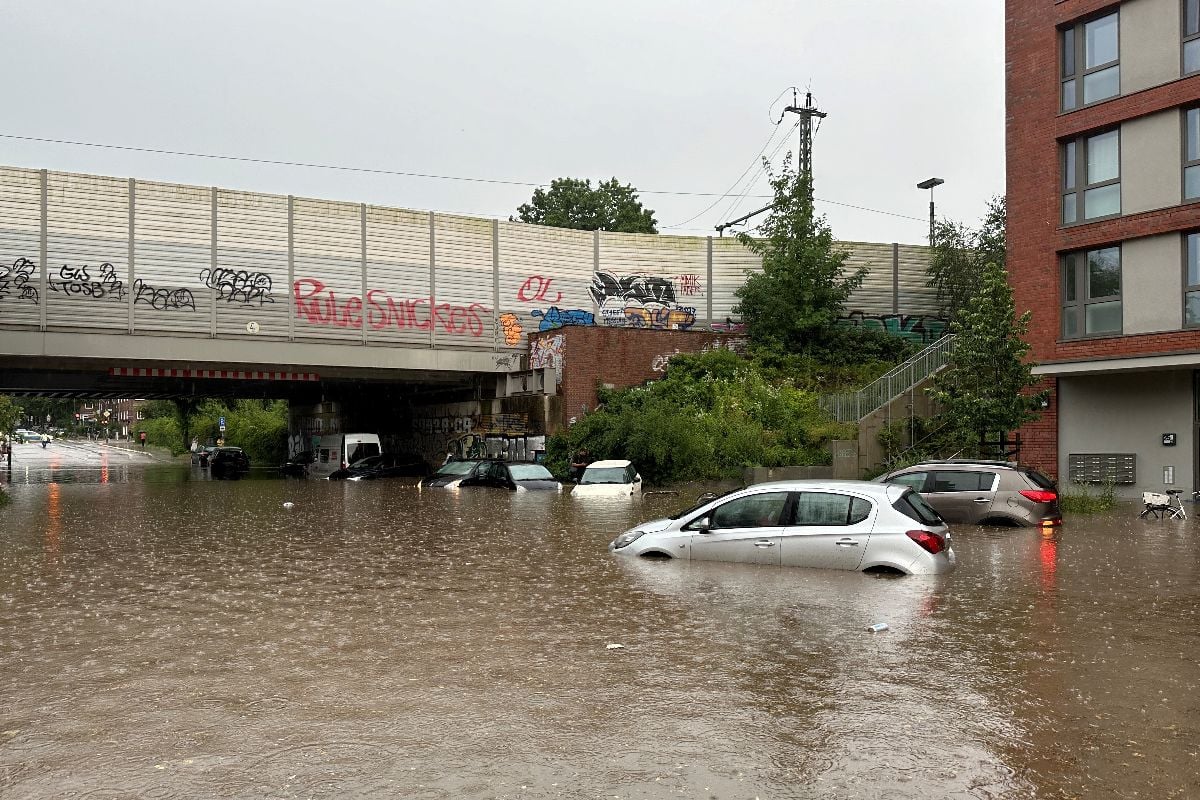
The railway line between Bremen and Hamburg had to be temporarily closed. According to Deutsche Bahn, long-distance trains were diverted via Hanover and several regional trains were cancelled. The line has since been reopened, at least to a limited extent, and delays should still be expected.
Transport was also hit in other areas, including Baden-Württemberg, while some roads were closed due to flooding.
READ ALSO: Germany braces for heat, humidity and thunderstorms
Earthquake registered in Baden-Württemberg
In the south of Baden-Württemberg, an earthquake of magnitude 4.2 woke many people from their sleep early Thursday morning.
The quake was cantered near the municipality of Schopfheim (Lörrach district), according to the State Seismological Service (LED).
The LED said that the earthquake was the strongest in Germany since 2009. The last comparable earthquake occurred on May 5th, 2009, near Steinen (also in the Lörrach district) with a magnitude of 4.5.
Experts say that earthquakes of this magnitude can inflict slight damage on buildings near the epicentre.
Baden-Württemberg is the state with the highest earthquake risk in Germany. Seismic activity in this region is the result of the collision of the African continental plate colliding with the Eurasian plate.
Euros hosts Germany get ready to face Denmark
Euro 2024 hosts Germany come into Saturday’s last 16 clash with Denmark in Dortmund hoping to have learned from Sunday’s 1-1 draw with Switzerland, their final group stage match.
After almost a decade of struggles at major tournaments, Germany were riding high after dominant wins over Scotland and Hungary to start the Euros.
Germany however came crashing back down to earth against Switzerland and were on course for defeat, before Niclas Fuellkrug’s stoppage time header snatched a draw – and with it, first place in the group.
It was a wake-up call the hosts needed, particularly with fans already eyeing a fourth Euros crown, and a reminder that coach Julian Nagelsmann has plenty to work on.
READ ALSO: How (and where) to watch Euro 2024 in Germany
The first wolf spotted on a northern island
A lone wolf was captured by wildlife cameras on the Frisian island of Norderney – the first to be seen on the island. Two photos of the wolf were captured, on June 6th and then again on the 20th.
Experts suspect that the wolf swam across the Wadden Sea while on the hunt for deer. The island is four kilometres from the mainland.
Mayor Frank Ulrichs told the Tagesspiegel that so far, he received two emails from guests who have cancelled their summer visit to the island for fear of the wolf: “Apart from that, no vacationer is deterred by it”.
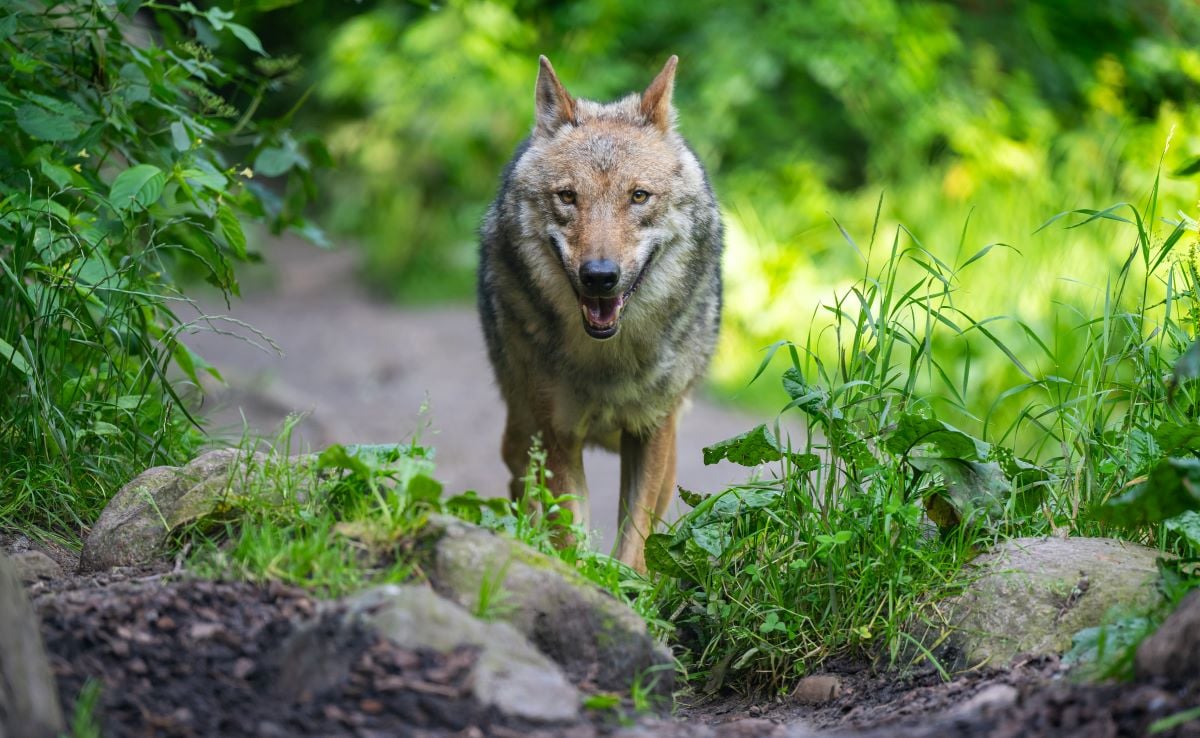
READ ALSO: Reader question – Are bears and wolves a threat in Germany?
Actually, for tourists who come to Norderney to gaze at herons, geese or spoonbills in the island’s bird sanctuary, the potential to see a wolf is an exciting prospect. But so far no signs of the wolf have been found. If not for the photos, the wolf’s presence would have gone completely unnoticed.
Wolves are strictly protected in Germany. Illegally shooting a wolf is punishable by hefty fines or even jail time – hunting a wolf requires a permit which is only granted if a wolf has killed livestock.
There is no known case in which a wolf has attacked a human in Germany.
German court rules ‘climate neutral’ ad claims must be backed up
Companies in Germany can only promote their products as “climate neutral” if they back up the environmental claims with sufficient detail in the advert itself, a top court ruled Thursday.
The ruling was made in a case brought against German confectionery manufacturer Katjes by an association that aims to tackle unfair business practices.
It centred on an advert that appeared in a trade publication for the food industry, which stated that “since 2021, Katjes has been producing all products in a climate-neutral fashion”.
It included a picture of a packet of fruit gums with a “climate neutral” logo and the website address of a partner firm that helps companies in reducing their greenhouse gas emissions.
The ruling found the production of the sweets was not carbon-neutral however — rather, the confectionery manufacturer supported environmental protection projects to offset emissions through its partner.
Two lower courts had dismissed the case but the Federal Court of Justice (BGH) ruled in favour of the association, the Centre for Combatting Unfair Competition.
“In the case of advertising that uses an ambiguous environmental term such as ‘climate neutral’, the specific meaning must be explained in the advertising itself in order to avoid misleading the public,” the court said in its decision.
Meanwhile the European Union is also taking steps to crack down on greenwashing when it comes to labelling of products sold in the bloc.
Earlier this month, member states agreed on a draft of new rules laying out that environmental claims will have to be verified using strict criteria. The legislation will now have to be finalised in the European Parliament.
EU and Ukraine sign security agreement
The EU and Ukraine signed an agreement on security cooperation and long-term support on Thursday. The document was signed at the EU summit in Brussels by Ukrainian President Volodymyr Zelensky, EU Commission President Ursula von der Leyen and EU Council President Charles Michel.
Federal Chancellor Olaf Scholz called the security commitments “a sign of solidarity in difficult times”.
Zelensky expressed gratitude, but also called for even more commitment by EU countries for the rapid delivery of weapons and ammunition.
Scholz said on Thursday that a $50 billion loan to Ukraine should be made available “quickly and expeditiously”.
As a political declaration of intent, the EU agreement is not legally binding. The same applies to the pre-existent German agreement with Ukraine.
With reporting by Paul Krantz, Rachel Loxton and DPA.

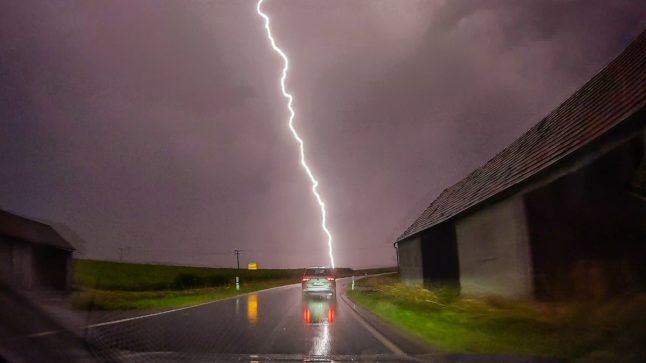
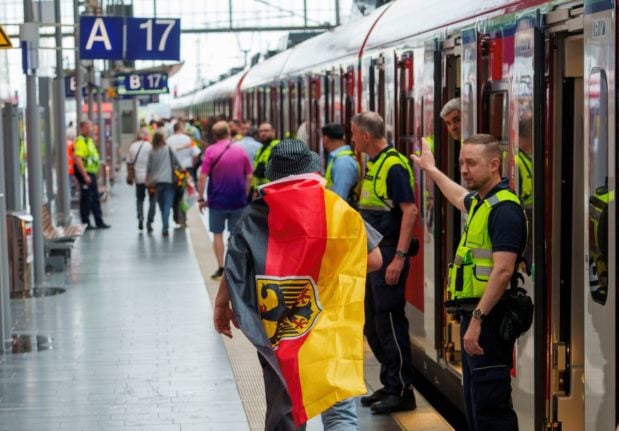
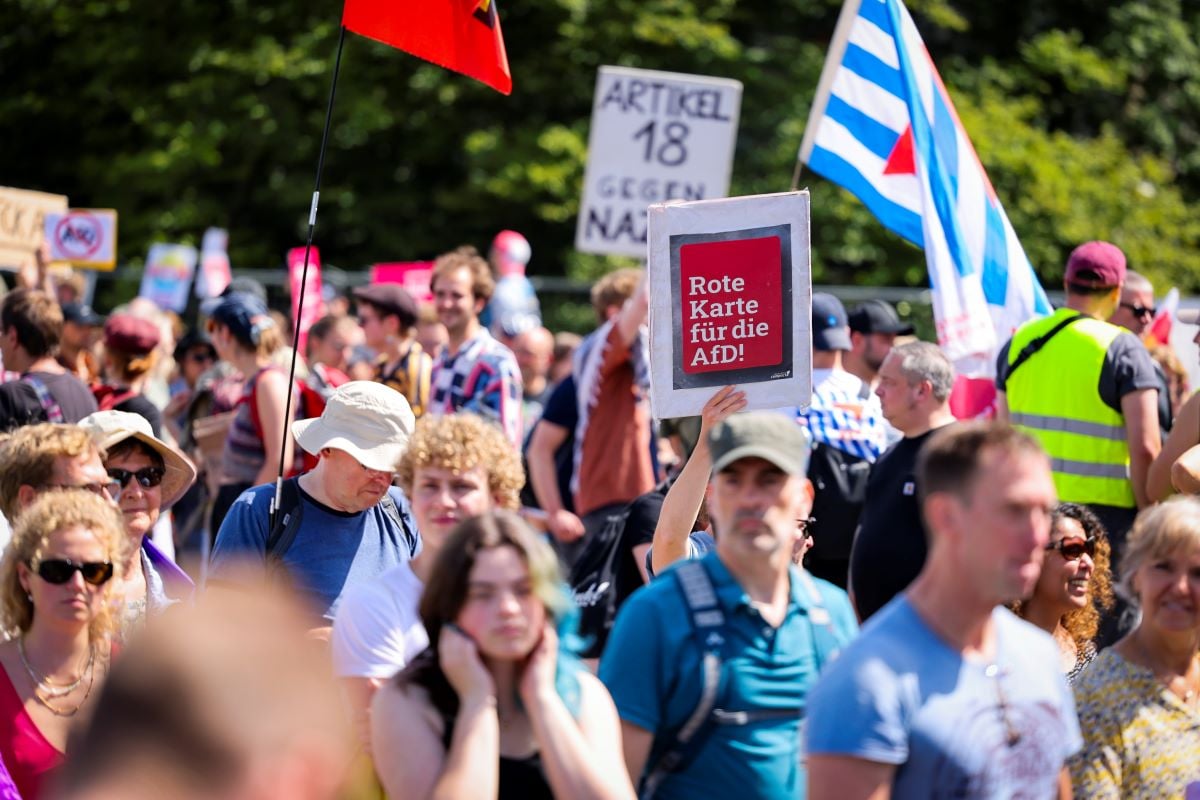
 Please whitelist us to continue reading.
Please whitelist us to continue reading.
Member comments